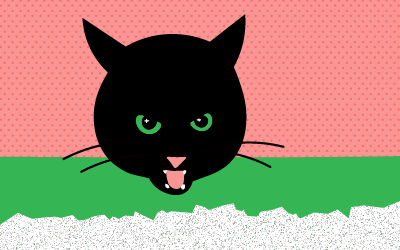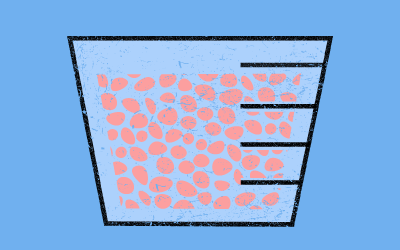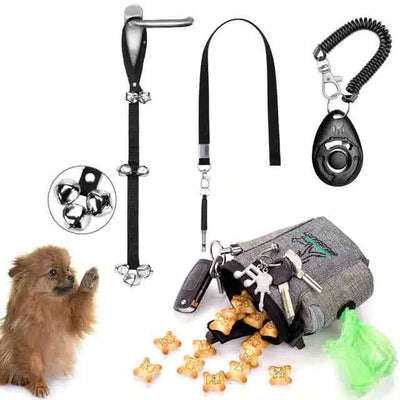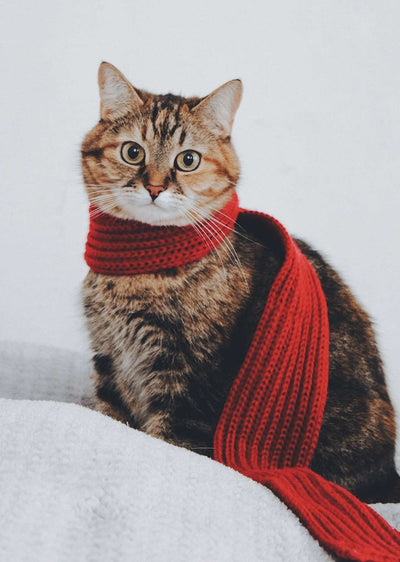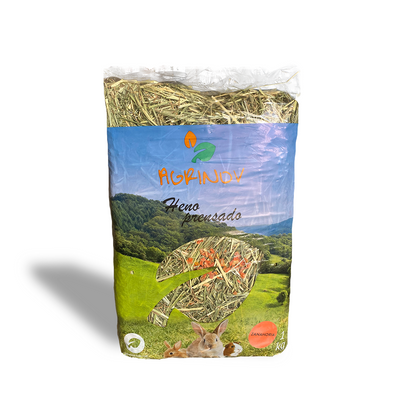Cats, by nature, are very clean animals. From four weeks of age they begin to use the sandbox instinctively. Being hunting animals, they need to hide the smell of their excrement to avoid alerting potential "prey" of their presence.

They say understanding cats is more difficult than dogs, but it is not entirely true. If you have ever found a “surprise” from your cat outside the litter box and you want to understand why he does it, we will tell you about it in this article.
Why doesn't my cat want to use his litter box?
The causes can be very diverse. You must remember that scolding the animal does not make any sense, because it will not understand what it has done wrong. The important thing to be able to solve it is to know the reason for its behavior.
Does your cat poop on the bed? Does he do it outside the sandbox? How is it possible being such a clean animal?
First, we have to discover if it is a bad hygiene habit or territorial marking
Lack of hygiene or territorial marking?
In nature, to defecate, the cat makes a hole in the ground, deposits and then covers its excrement with dirt.
Normally, the domestic cat follows this pattern using the litter box.
Therefore, if the cat looks for a flat surface such as the bed, the floor, the carpet, etc. and then tries to cover them by scratching around them, it may be related to a bad hygiene habit.
However, if the cat sprays urine on the furniture, the wall or leaves feces in the hallways without trying to cover them, the cause is territorial marking (typical in non-neutered males).

Possible causes and solutions of bad hygiene habits
1. Urinary system infection:
Urinating outside the litter box can be caused by a urinary infection such as cystitis or another disease of the urinary system. In this case, urination is painful and the cat leaves small amounts of urine very frequently, sometimes the urine has a little blood.
SOLUTION: If you think this may be your cat's problem, don't delay in doing a urine test. To collect a sample, it is most convenient to use a special silicone sand kit and a sample bottle . Take the sample to the veterinarian so they can analyze it and advise you on the next treatment steps.
2. For color tastes:
Cats, just like humans, have their tastes. You may not like the type or smell of the litter (if it is scented). You may also not like the location of the litter box. For example, citrus smells (such as lemon or orange) tend to put cats off, so it is better to avoid them if we want him to use his litter box. The texture of the sand must also be taken into account. Silicone litters are the most frequently rejected by felines.
SOLUTION: Change the sandbox from its usual location. Place it away from the food and water bowl, in a place where the cat has privacy. If this doesn't work, try changing the litter to something more natural, such as clay or vegetable, preferably unscented.
3. Open or covered sandbox?
The type of sandbox also affects. There are shyer cats, for whom a closed box is better to relieve themselves in a more intimate environment; and vice versa, others who prefer an open box.
Remember, a covered litter box retains odors more, which may be more convenient for people, but not for the cat.
SOLUTION: If you have an open litter box, place it in a hidden and quiet place, for example the corner of the bathroom or under the sink. If the litter box is covered, try to clean the droppings more frequently and/or uncover it.

4. Bad memories:
If the cat associates the box with stressful moments (attack by another cat, being groomed, etc.) it will not want to use the litter box either. If you have more than one cat (especially unspayed males), they may fight over who "marks territory" in the litter box.
SOLUTION: If you have several cats, try to ensure that each one has its own place to do its business and that it only has that purpose; Do not disturb your pet during defecation. You can also move the box around so the cat can “discover” it again.
Now, if none of the options presented above match your pet's case, why does the cat relieve itself outside the litter box?
If you notice that the cat is releasing small streams of urine on the wall, the cat may simply want to mark the territory as its own. In the case of territorial marking, the cat leaves its feces to show that it is the owner of the place and wants to smell its scent there.
Possible causes and solutions of territorial marking
1. Unneutered male cat:
Marking territory is very typical in unsterilized male cats. In fact, sterilization usually reduces this tendency among males by up to 90%. Sterilization has numerous benefits for both you and your pet. If you have not yet sterilized your cat, we recommend doing so.
SOLUTION: The best thing you can do in this case is to neuter your pet.
2. Stress:
The neutered cat can leave its excrement if it feels unsafe, for example when another member appears in the group, be it a person or another animal.
Then the cat wants to mark the territory as its own, leaving “surprises” in different places, for example on the bed.
Sometimes this type of behavior appears when the owner spends many hours away from home. This may be due to separation anxiety.
SOLUTION: Stress is a factor that must be worked on and takes time. You can use the urination attractant to indicate to the cat that the litter box is where it should relieve itself.
If you think the cause may be caused by separation, check out this post from Animal Expert: Separation Anxiety in Cats .
2. Detergents and cleaning products:
You need to be careful what you use to clean the furniture. The cat smells ammonia and bleach like urine. If you smell this aroma on the table leg, you may think that it is marked by another cat and leave your own marking to show who is the owner of the house.
SOLUTION: Avoid these detergents when cleaning both furniture and the sandbox. It is even advisable not to clean furniture less than 20cm from the floor so as not to eliminate its pheromones.

We hope this article helps you if your cat doesn't want to urinate in the litter box.
Always remember that you cannot punish your pet for doing so. If you have any questions, do not hesitate to contact us, we will be happy to answer them. Until next time =D


